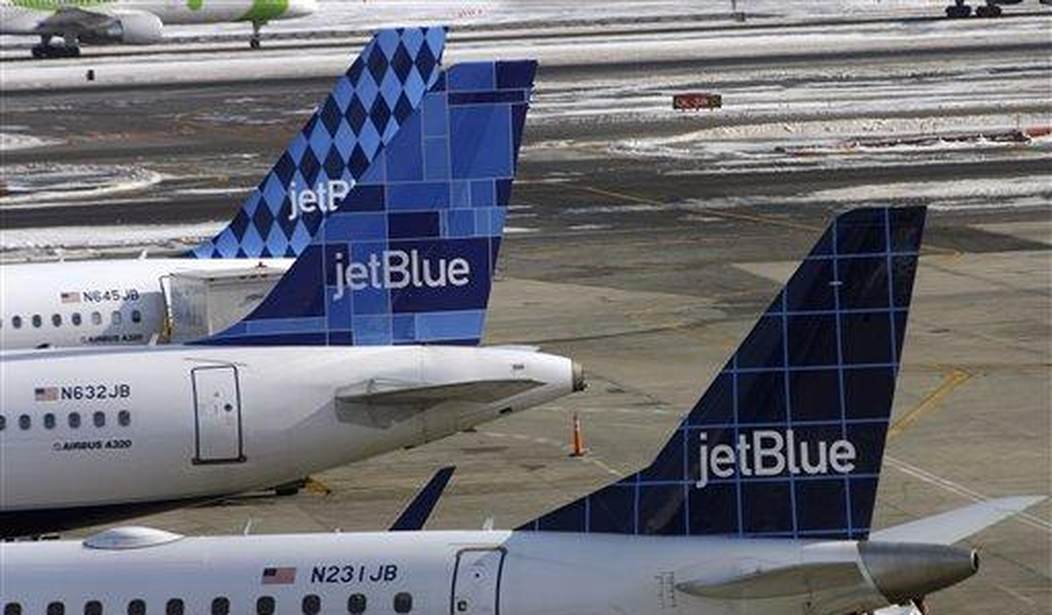It’s no secret that the airline industry is not especially popular these days. High costs, hidden fees, and canceled flights are frequent sources of customer dissatisfaction. Travelers need a win, which makes it baffling that Biden’s Department of Justice recently sued to block JetBlue’s acquisition of Spirit Airlines.
There used to be a strong bipartisan consensus on antitrust enforcement. For half a century, antitrust law was centered around the standard of consumer welfare. This was an evolution from the heavy-handed approach of the Progressive era that harmed consumers and thwarted competition and economic growth. Focusing on the impact to consumers helped limit government from overreaching when no clear need for action could be articulated.
More often than not, when industry consolidation leads to inefficiencies, the market provides a remedy as new entrants step in to compete. The Biden administration, however, seems determined to upend the consensus that has stood since the 1970s and replace it with a return to government interventionism in the economy when, if anything, economic history reveals concern over monopolies is overblown and that policy should be moving in the opposite direction.
The story goes that the first antitrust law, the Sherman Act, was passed against a backdrop of widespread monopolization of the economy. On the contrary, by comparing prices and outputs in industries mentioned by Congressional advocates for the Sherman Act, Thomas DiLorenzo showed that antitrust law was pushed by producers who lost market share to newer and more efficient firms. The industries in question were actually increasing outputs and lowering prices, the exact opposite of what would be expected under monopolistic conditions.
Recommended
Antitrust, as it turns out, is often anti-competitive. Such would be the case again today if the DOJ succeeds in blocking the merger between JetBlue and Spirit Airlines.
The Big Four airlines (American, Southwest, Delta, and United) combine for almost 70% of domestic market share. A combined JetBlue-Spirit would merely be the fifth largest domestic airline but could compete more comprehensively with the current Big Four. This would allow for expansion of the “JetBlue effect,” a documented tendency of JetBlue’s entrance into a market to force other carriers to reduce prices.
Proponents of DOJ action to prevent the merger fret that loss of the smaller Spirit, currently at 4% market share, would leave one less low-cost airline in the market. That is far from the case. Consumers will not see a reduction in flights; they will see more flights under the banner of an upstart airline that has more leverage to compete with the industry big boys.
They will also see a reduction in “junk fees” — annoying “gotcha” fees, such as the one many airlines charge mothers and fathers to ensure their young children can sit next to them inflight. While Spirit Airlines has built its business model off charging these fees, JetBlue has not and retains a customer service model that the American people have grown to know and love. Yet, although the Biden administration is aggressively seeking to use the power of big government to end these junk fees, it is curiously blocking a private marketplace solution that will in many ways rectify this problem.
Mergers and acquisitions are a necessary component of a dynamic economy. By allowing companies to combine their resources and expertise, an acquisition can result in new products and services, expansion into new markets, or cost savings and operational efficiencies. Interference in this process should be done with great reluctance, and only when there is a clear and compelling need. There’s little chance that government regulators can make a convincing case for interference based on the facts and circumstances of the market. Any action will thus be ideologically driven.
Daniel J. Mitchell is the co-founder and president of the Center for Freedom and Prosperity.

























Join the conversation as a VIP Member